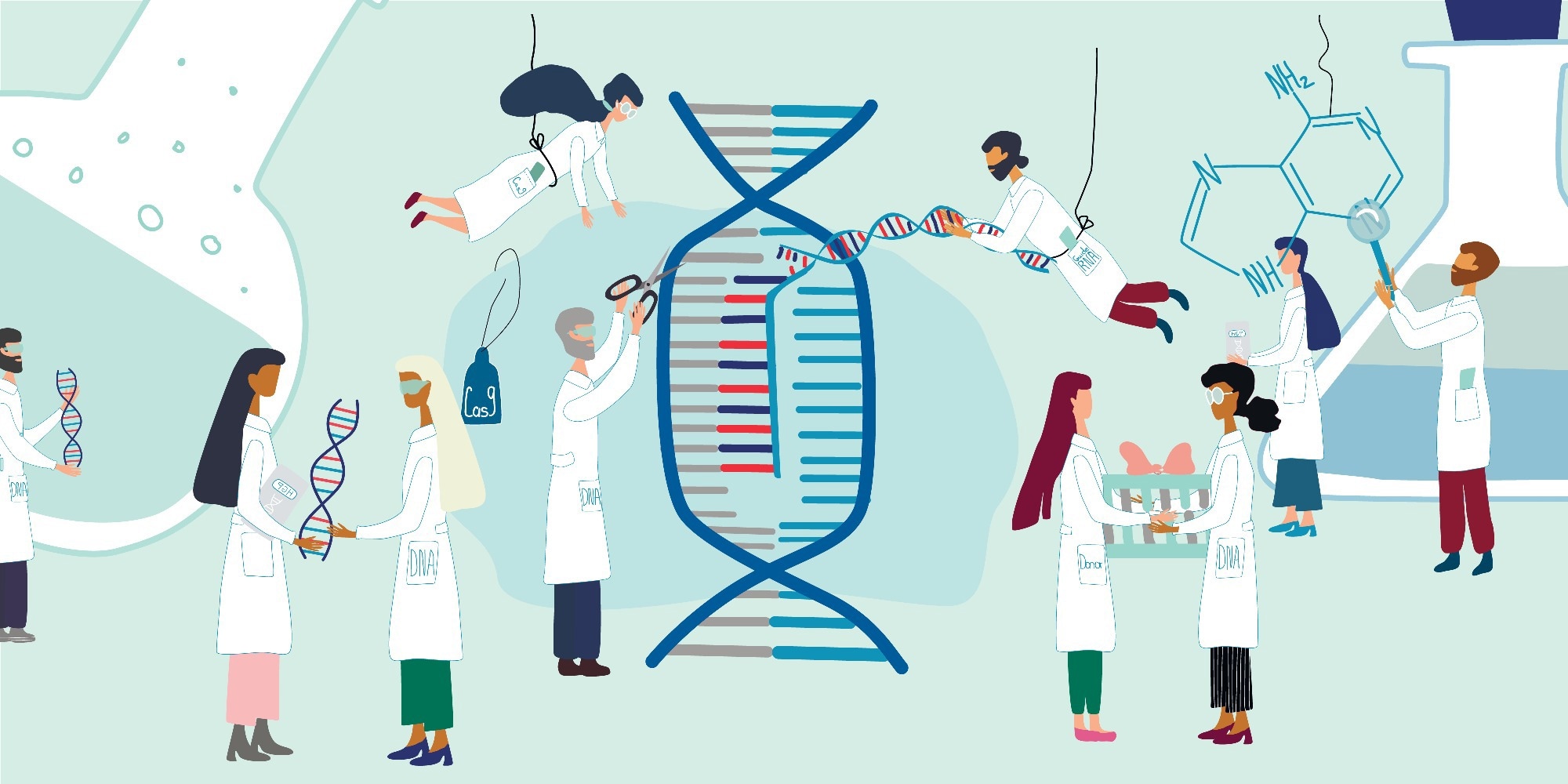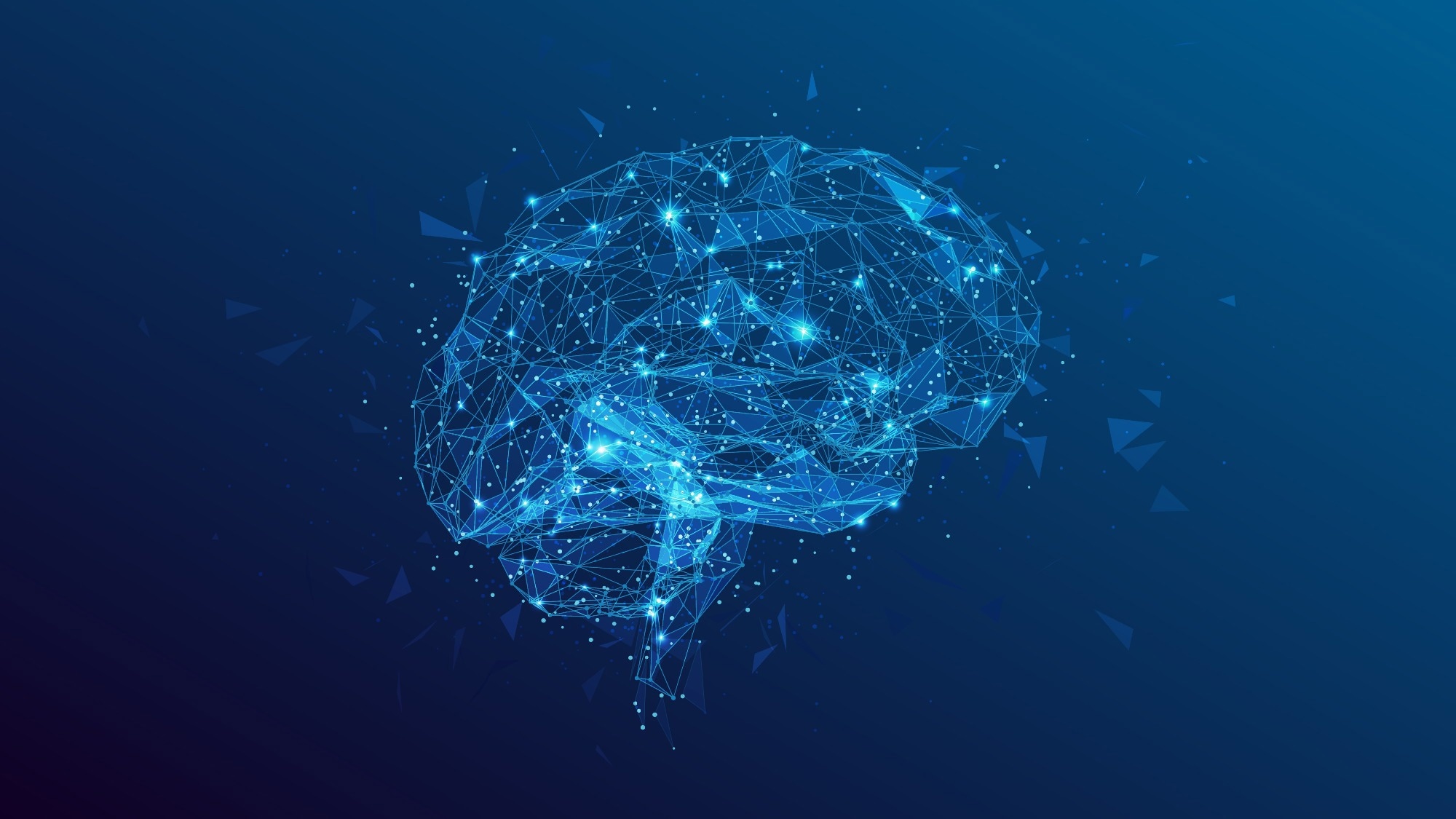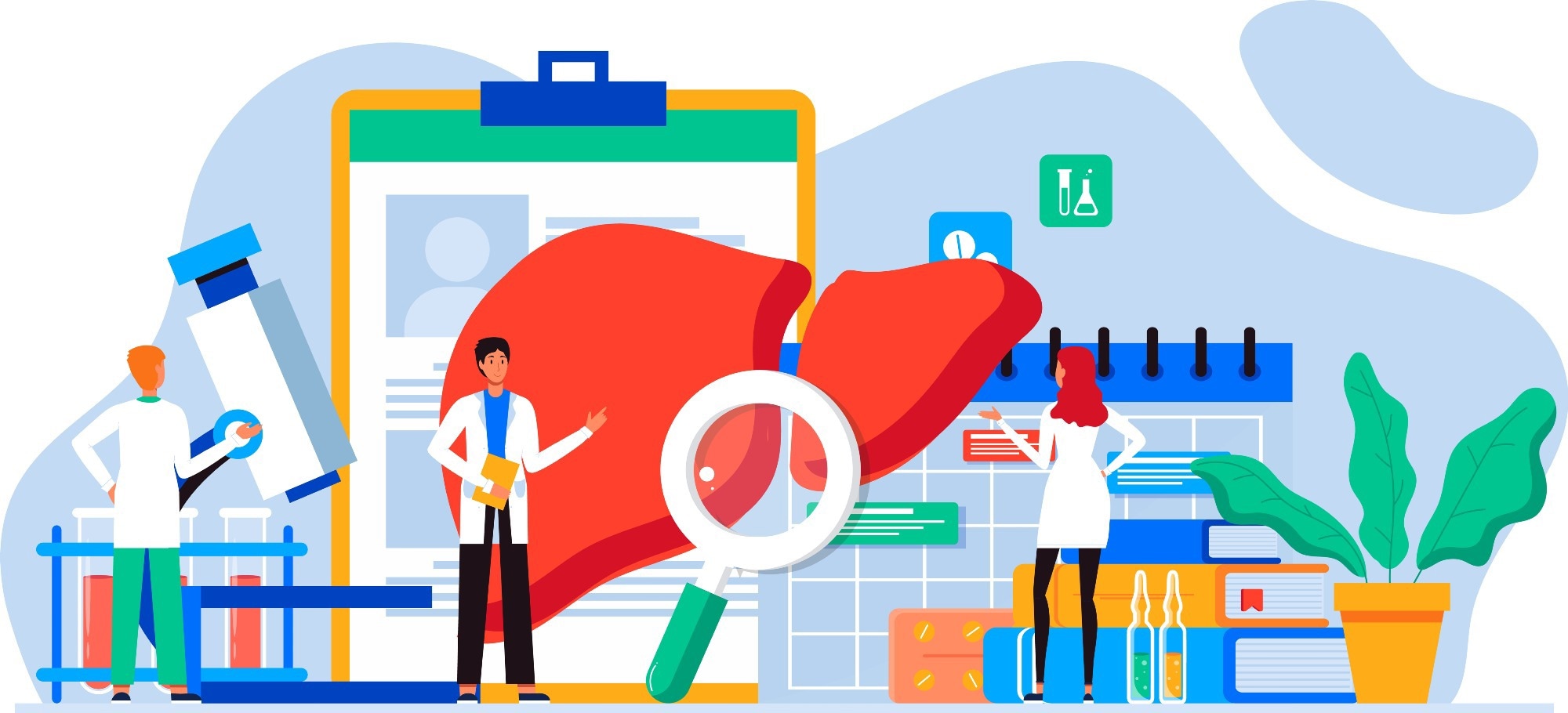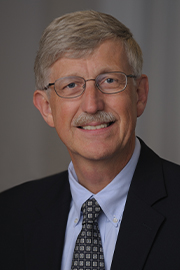Every year on the 25th of April, the world celebrates National DNA Day; an awareness day celebrating the discovery of the DNA double helix. This year however, commemorates the 70th anniversary of the discovery of the DNA double helix alongside the 20th anniversary of the completion of the Human Genome Project making it extra special.
To highlight how far the field of genetics has come since the discovery of DNA's structure, we sat down with Dr. Francis Collins, the leader of the Human Genome Project and former Director of the NIH, about his incredible career in genetics from his initial interest in science and involvement in the Human Genome Project, all the way through to his work in the NIH and White House as a Special Advisor to the President for Special Projects. Read the full interview below to learn more about the past, present, and future of genetics research.
Please can you introduce yourself and tell us what inspired your career within the life sciences?
I am Francis Collins. In graduate school, I became interested in the life sciences, studying physical chemistry. I got excited about DNA and realized there were really cool things happening in life science that I had previously ignored because I was focused on simpler questions in physics and chemistry.
This made me change my direction, which was a bit disruptive to life planning, but it was a good thing. I went to medical school, and there figured out that I was really excited about bringing together the science of the human body, which is medicine with genetics and the study of the DNA molecule.
Your predominant research focus in genetics is surrounding the genes responsible for diseases. Why did you choose to focus on this particular area of genetics research, and how has the discovery of new genes responsible for various diseases impacted the field of drug discovery and therapeutics?
For me, the interest in this wonderful molecule, which we are now celebrating the 70th anniversary of its original description, that double helix, was so compelling in this instruction book for human life and all other organisms.
To understand the most fundamental level of how disease happens and what you could do about it, you had to focus on DNA. The idea that one could discover misspellings in this instruction book that would have significant consequences for people's future seemed like something I wanted to be involved in.
When I started, there were not many genetic diseases where we knew this answer, but over the course of the next 35 years, particularly because of the Human Genome Project, which I had the privilege of leading, we developed the tools to elegantly examine 3 billion letters of the human instruction book and find maybe just one that was out of place.
So-called positional cloning, which I had the chance to be involved in early on, enabled finding the cause of cystic fibrosis with colleagues and has now been conducted for almost 7,000 diseases, giving us hope for better diagnoses and ultimately discovering how to treat or even cure them.

Image Credit: Elena Sharipova/Shutterstock.com
As well as your research surrounding disease genes, you were appointed the leader for the Human Genome Project, an international research project set out to map, identify, and sequence all the genes that make up the human genome. Can you tell us more about your involvement in this project and what impact the success of this project has had on the field of genomics?
I never expected to be asked to lead a big, complicated international project, but I was really excited about being able to read out for the first time all the letters of our own DNA code.
Thirty years ago, I left my academic position at the University of Michigan and came to the National Institutes of Health to try to organize this international effort. Many people were skeptical about it with the limited technology and possible costs.
It was tough initially, but then many got excited about the potential, and I was able to bring on board some of the best and brightest of this generation of scientists who wanted to be part of this.
Momentum began to build, and with ultimately 20 different groups in six countries, we were able to deliver on the promise of the Human Genome Project, discovering that 3 billion letter code, all in the public domain and two years ahead of the expected schedule and at a lower cost, which made a lot of people happy in the US Congress.
This was profound. The foundation of everything about humanity, as far as its biological nature, is written in that code.
It still amazes me, as we are celebrating the 70th anniversary and 20 years since the Genome Project was completed, that 3 billion letters in an instruction book is enough to go from a single cell, which we all once were, to this amazingly complicated developmental process that results in people with consciousness in a brain with 86 billion neurons.
The medical consequences are beginning to appear in a significant way, and this is the part for me as a physician that I am excited about, that the genome is not an academic exercise but may be the best hope we have for the future of medicine for preventing suffering and curing terrible disease.
Every year, the world celebrates National DNA Day, celebrating the discovery of the DNA double helix. However, this year is extra special as it will also commemorate the 20th anniversary of the Human Genome Project as well as the 70th anniversary of the discovery of the DNA double helix. Why is it important to recognize how far genomics research has come over the last 70 years, and what does this day mean to you?
We all note these anniversaries as an opportunity to reflect on where we have been, where we are, and where we might be going next. When history looks back at the scientific achievements of the 20th and 21st centuries, what is going to be on that shortlist?
I think splitting the atom, going to the moon, but also sequencing the human genome because it is so profound in terms of a transformation in our understanding of ourselves and what it means about life and disease and how to manage that. It is not a bad idea to stop and think for a minute about what happened over those 70 years to get us to today and how did that Genome Project effort, completed essentially 20 years ago, begin to empower many aspects of who we are.
It is not all about medicine, either. Another learning is how we are all related to each other. There is no biological basis for anybody to think of other people as not part of the same group. We are all part of one family descendant from a common set of ancestors; genomics made that clear. This is good for us to keep in mind when we seem to be divided from each other.
For the medical aspects, the advances with cancer and where we will be able to go are hugely important. Cancer is a disease of the genome, and now, in any patient who has the disease, we can figure out exactly what is driving those good cells to go bad and what to do about it.
This is transformative and is already becoming almost a standard of care. We can use sequencing of the genome to understand what is happening in a mysterious circumstance where somebody has a disorder, and nobody understands. About 40% of the time, genome sequencing gives the answer.
Discovering all these genes involved in diseases means that we are now on the path to understanding how to cure those diseases. There are some dramatic examples, such as spinal muscular atrophy, where kids never used to live more than a year or two but are now able to go to school.
Sickle cell disease, the first molecular disorder, has one letter that should have been an A but instead is a T, and this causes a very serious illness. We are now curing this using genetic approaches.
Genetic sequencing is still complicated and expensive, and it needs to be more accessible to places like Africa. But the proof of principle is there. I did not know that would happen in my lifetime, and I bet there are many other things I have not expected that will happen in the next ten years.
For people reading this, particularly young people trying to figure out what they want to do with their life, career, and interests if you happen to be interested in science in any way, this is the moment for life science to explode with potential and have all kinds of applications that some of us have not even thought of yet, but are going to be amazing to be part of. We need you.

Image Credit: National Human Genome Research Institute
In 2021, you stepped down from being the Director of the NIH after serving as the longest presidentially appointed director. Whilst serving as the director, you watched the world navigate through a global crisis; the COVID-19 pandemic. As someone responsible for spearheading the NIH's response to the pandemic, what impact did the pandemic have on the health of the nation, and how important was it to you to design a strategy that mitigated its impact?
When COVID-19 emerged in January 2020, this was the greatest challenge the scientific community had ever really faced, and the response was phenomenal. From every sector, from academic investigators, from the government, from the industry, we all got together and said, "This is a crisis. We cannot worry too much about who is going to get the credit. We just have to bring every kind of skill and talent to bear on this."
The results were remarkable, including the vaccines. In the past, the shortest timetable to develop a vaccine against an illness was perhaps five years. Most vaccines failed, and the ones that worked generally had a success rate in terms of protecting you of perhaps 50-60%. With the new approach of mRNA vaccines, 11 months from the first glimmer of what the virus was to having those approved for emergency use and with a 95% efficacy better than anybody had almost dared to hope.
That is a truly remarkable demonstration of what science can do in a circumstance like this. I think history will notice that for decades to come. We also had to find therapeutics, and initially, we had to start with things already approved for other diseases to see if they would work, such as Remdesivir. Steroids and monoclonal antibodies also were developed.
We were always chasing the next variant, which was one of the challenges with SARS-CoV-2, and so much of what we tried to do, we had to revise the approach again. This is why the vaccines are now boosters that are so-called bivalent because they include the Omicron as well as the original variant of the virus.
In the diagnostic arena, with a rough start regarding the testing capacity in the US, we brought to bear all of the technological talent, the engineers, and the people who knew how to take things and turn them into tests that you could do at home.
Now, these tests are widely available. It was a stress, and it is still a stress. COVID is not entirely over; let us be clear about that. Unfortunately, there was a lot of confusion, and misinformation and politics got involved, but when you look at the scientific response, it was astounding.
A Farewell for Dr. Francis Collins: Barack Obama
Despite the devastation the pandemic caused worldwide, we saw that when international strategies are aligned, scientific progress can be made at an unprecedented level. How can we take lessons learned from the pandemic to help continue the acceleration of scientific discoveries?
Science has always been international. Scientists like the idea of collaborating with people who are not necessarily in the same building, town, or even country. The Genome Project was a good example, involving six countries substantively, and many others played other roles.
The pandemic built upon that tradition of trusting each other to do things together across country boundaries and further strengthened it. A lot of the combined effort is now focused on preparing for the next pandemic.
There are efforts to try to look at what happened with COVID-19 and say, "Could we better prepare ourselves the next time by actually starting some of the processes for vaccines and treatments, even before we know exactly what virus we are going to have to address?" If we manage to stick to our determination there, to actually do that preparation and not sink back into complacency, then I think we have a better chance with the next one.
But this is going to require the same kind of international collaborative effort. The good news is that science has always been this way. It is not like we must invent relationships that were not there. We need to be sure they are strengthened and kept in as vigorous and open an environment as possible.
Throughout your career, you have had numerous incredible achievements, including receiving the Presidential Medal of Freedom and the National Medal of Science as well as serving 12 years as the Director of the NIH and being the scientific advisor to the President. For you, what has been your proudest achievement?
I have indeed been fortunate in a way that I would never have expected, having been a boy who grew up on a small farm with no indoor plumbing. To end up in this circumstance of having the chance to take part in all these projects has been beyond any expectation I could have had.
It is hard to pick one thing because all of these matters, including things I am working on right now, such as trying to find a cure for one of the rarest forms of premature aging, a disease called progeria. I care deeply about those kids; I want to find an answer for them. But considering everything and the context of history, having the chance to lead the Human Genome Project would probably climb its way up to the top of the list, but not by much.

Image Credit: E-ART/Shutterstock.com
We have seen the field of genetics transform significantly just in the last decade, with the sector now entering a new era surrounding automation, AI, and increased cross-sector collaborations. What are you personally most excited about for the future of the life sciences? Are there any particular breakthroughs you are looking forward to?
Several areas are full of potential for a breakthrough. One is the brain. We have the ability now, with the tools of genomics, to ask each cell in the brain, "What are you doing?" This single-cell biology approach begins to build information about circuits and discover how they work. There is an initiative underway that is now seven years along that is making really good progress there, with a lot of it being engineering and technology.
We are going to understand how you lay down a memory and retrieve it, as well as many things that we do without thinking about it, these complex functions that are ingrained somehow in that genome we were all born with.
I would say another area is the general application of single-cell biology. It opens all these potential opportunities for understanding the biology and how these things sometimes go awry and cause disease. We have the opportunity to do precision medicine, which I am excited about. Not just about how to manage disease but how to prevent it.
In many countries and certainly in the US, in the All of Us Project, the aim is to answer these questions by enrolling a very large number of people (1 million for the US) and tracking them over time with complete access to their medical records, their genome sequence, their behaviors, their health practices and examining how all these things play out with environmental exposure to keep people healthy or to have them fall ill.
How can we take that advantage forward to have a preventive approach to disease that is not just a one-size-fits-all that people tend to ignore but an individual recommendation?
There is a revolution in gene therapy cures for diseases, and this is focused particularly on rare diseases caused by a single gene that has gone awry, but it will play out also in more complicated polygenic conditions like heart disease, hypertension, etc. This will be transformative, as it gives us a whole new approach to understanding how to address the wide range of illnesses that afflict this.

Image Credit: Julia Lazebnaya/Shutterstock.com
What is next for you? Are you involved in any exciting upcoming projects?
When I stepped down as NIH director, I got asked to come to the White House and serve as the president's acting science advisor, which I did for seven or eight months. It was interesting covering a wide range of things that I had not thought about much before, such as fusion energy.
Now I am serving as a special project advisor to the president, and I am focused very much on what could be one of the more dramatic public health achievements of this era, which is to eliminate hepatitis C as it is killing 15,000 people in the US. We have a cure for that disease. One of the most remarkable achievements of medical research is just one pill a day for 12 weeks gives a 95% cure with no side effects. But people are not receiving it for various complicated reasons relating to healthcare delivery and cost.
If we care about all our people, we need to do something about this. This is what I am doing right now, trying to convince Congress and the public health system that this is an opportunity we cannot pass up. It will save tens of thousands of lives and save tens of billions of dollars for people who once have cured their hepatitis C, will no longer need a liver transplant or treatment for liver cancer, and will not get diabetes or kidney disease because these can all be prevented. Instead of waiting for people to get sick, let us prevent it.
About Dr. Francis Collins
Francis S. Collins, M.D., Ph.D., currently serves as a Senior Investigator in the intramural program of the National Human Genome Research Institute, pursuing genomics research on type 2 diabetes and a rare disorder of premature aging called progeria.
Dr. Collins is a physician-geneticist noted for his landmark discoveries of disease genes and his previous leadership of the international Human Genome Project, which culminated in April 2003 with the completion of a finished sequence of the human DNA instruction book. He served as director of the National Human Genome Research Institute at NIH from 1993-2008.
Dr. Collins then served as the 16th Director of the National Institutes of Health (NIH), appointed by President Barack Obama and confirmed by the Senate in 2009. In 2017, President Donald Trump asked Dr. Collins to continue to serve as the NIH Director. President Joe Biden did the same in 2021. For those 12 years, serving an unprecedented three administrations, Dr. Collins oversaw the work of the largest supporter of biomedical research in the world, spanning the spectrum from basic to clinical research. Dr. Collins stepped down as NIH Director on December 19, 2021.
From February 2022 to October 2022, Dr. Collins served as Acting Science Advisor to President Biden. From November 2022 to May 2023 he continued his White House service as a Special Advisor to the President for Special Projects, leading the development of a bold program to eliminate hepatitis C in the United States.
Dr. Collins is an elected member of both the National Academy of Medicine and the National Academy of Sciences, was awarded the Presidential Medal of Freedom in November 2007, and received the National Medal of Science in 2009. In 2020, he was elected as a Foreign Member of the Royal Society (UK) and was also named the 50th winner of the Templeton Prize, which celebrates scientific and spiritual curiosity.